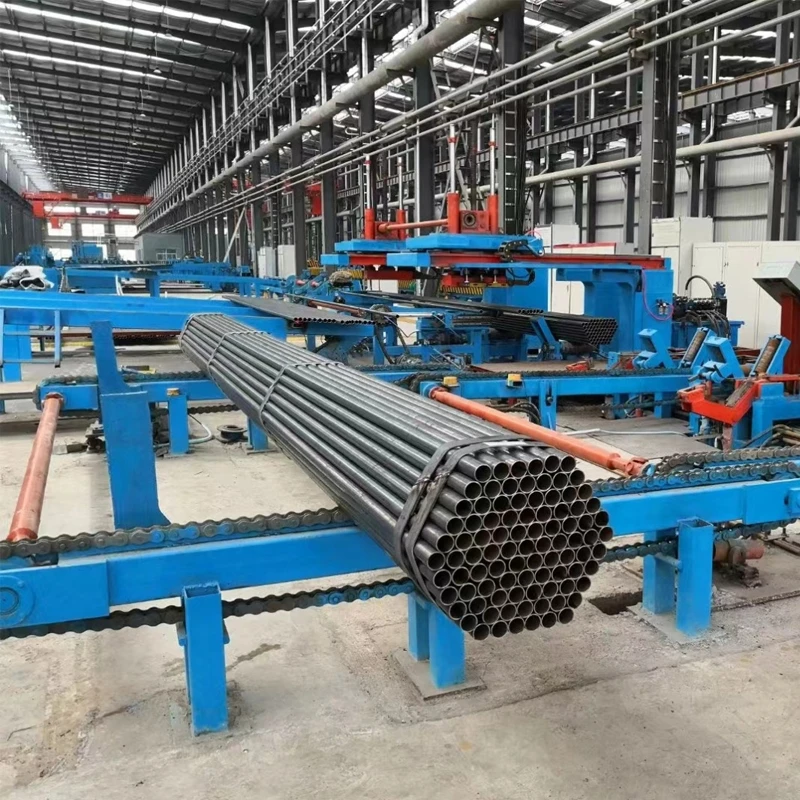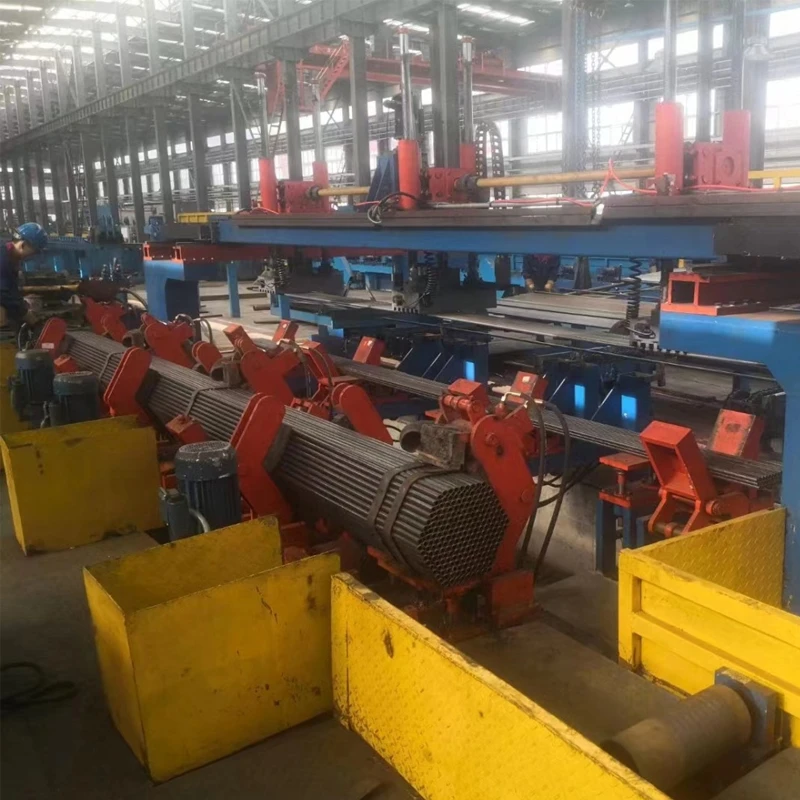Pipe Extrusion Machine Manufacturers High-Efficiency Solutions
- Understanding the Role of Pipe Extrusion Machines in Modern Manufacturing
- Key Technological Advancements Driving Efficiency
- Performance Metrics: Leading Manufacturers Compared
- Customization Strategies for Diverse Industrial Needs
- Real-World Applications Across Industries
- Cost-Benefit Analysis for Long-Term Investment
- Future Trends in Pipe Extrusion Machine Development

(pipe extrusion machine)
Understanding the Role of Pipe Extrusion Machines in Modern Manufacturing
Pipe extrusion machines are integral to producing high-quality plastic and metal pipes used in construction, automotive, and utilities. These systems melt raw materials (e.g., PVC, HDPE, or ABS) and shape them into precise diameters and wall thicknesses. With global demand for pipes projected to grow at a CAGR of 5.2% through 2030, manufacturers rely on advanced extrusion technology to meet strict industry standards while minimizing waste.
Key Technological Advancements Driving Efficiency
Modern pipe extrusion machine
s incorporate AI-driven monitoring, dual-stage vacuum calibration, and energy-efficient screw designs. For instance, next-gen models reduce energy consumption by 25% compared to legacy systems. Features like real-time thickness control ensure tolerances within ±0.1mm, critical for applications requiring pressure resistance up to 25 bar.
Performance Metrics: Leading Manufacturers Compared
| Manufacturer | Max Output (kg/h) | Energy Use (kWh) | Pipe Diameter Range (mm) | Maintenance Interval |
|---|---|---|---|---|
| KraussMaffei | 850 | 180 | 16-630 | 1,200 hours |
| Milacron | 720 | 210 | 20-500 | 900 hours |
| Battenfeld-Cincinnati | 950 | 165 | 12-800 | 1,500 hours |
Customization Strategies for Diverse Industrial Needs
Top pipe extrusion machine manufacturers offer modular designs adaptable to specific materials, production speeds, and automation levels. A beverage company recently achieved 40% higher output by integrating a co-extrusion module for multilayer barrier pipes. Customizable options include:
- Material-specific screw configurations
- Diameter adjustment systems (16mm to 1,200mm)
- IoT-enabled predictive maintenance packages
Real-World Applications Across Industries
Case studies demonstrate versatility:
- Construction: A 2023 project in Germany used extruded HDPE pipes to replace aging municipal water lines, reducing installation time by 30%.
- Automotive: Custom ABS fuel lines produced at 2,200 kg/h now meet Euro 7 emission standards.
- Agriculture: Drip irrigation systems leveraging 80mm diameter pipes increased crop yields by 18% in arid regions.
Cost-Benefit Analysis for Long-Term Investment
While premium pipe extrusion machines require an initial investment of €200,000–€1.2 million, ROI typically occurs within 2–4 years. A 2024 survey showed that 78% of users recovered costs through:
- 15–22% lower material waste
- 30% reduced downtime via smart diagnostics
- Compliance with ISO 4427 and ASTM standards
Future Trends in Pipe Extrusion Machine Development
As sustainability mandates tighten, pipe extrusion machine manufacturers are pioneering closed-loop recycling systems and bio-based polymer compatibility. Emerging markets show 12% annual growth in demand for machines producing corrugated and multi-layer pipes, driven by 5G infrastructure and renewable energy projects requiring specialized conduits.

(pipe extrusion machine)
FAQS on pipe extrusion machine
Q: What factors should I consider when choosing pipe extrusion machine manufacturers?
A: Prioritize manufacturers with industry certifications, proven experience, and positive customer reviews. Ensure they offer after-sales support and customization options tailored to your production needs.
Q: How does a pipe extrusion machine work?
A: A pipe extrusion machine melts raw materials like plastic or metal, then forces the molten material through a die to shape it into pipes. The extruded pipes are cooled, solidified, and cut to desired lengths.
Q: What are the key advantages of using a modern extrusion pipe machine?
A: Modern machines provide high production efficiency, consistent product quality, and energy-saving features. They also support versatile material options and enable precise control over pipe dimensions and thickness.
Q: How often should a pipe extrusion machine undergo maintenance?
A: Routine maintenance should occur monthly, focusing on cleaning screws, barrels, and dies. Annual professional inspections are recommended to check for wear and optimize performance.
Q: Can extrusion pipe machines handle different materials?
A: Yes, most machines process materials like HDPE, PVC, PP, and ABS. Ensure the machine’s temperature controls and screw design match the specific material’s melting and flow requirements.
-
High-Quality Line Pipe Steel for Oil & Gas PipelinesNewsAug.21,2025
-
Advanced PVC Belling Machine for Efficient Pipe ProductionNewsAug.19,2025
-
High-Frequency Straight Seam Welded Pipe Production Line-BzZhou Xinghua Machinery Equipment Manufacturing Co., Ltd.|Steel Pipe Manufacturing, Precision EngineeringNewsAug.18,2025
-
High Quality Enamel/Pre-seasoned Camping Square Cast Iron Grill Pan-BzZhou Xinghua Machinery Equipment Manufacturing Co., LTD.NewsAug.18,2025
-
High Quality Enamel/Pre-seasoned Camping Square Enamel Cast Iron Grill Steak Pan - BzZhou Xinghua Machinery Equipment Manufacturing Co., LTD.NewsAug.18,2025
-
Automatic Pipe Belling Machine - Precision & SpeedNewsAug.18,2025


